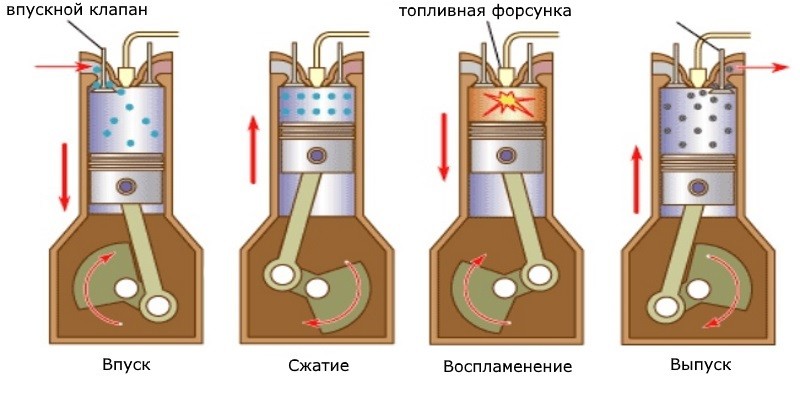
What is the difference between diesel and gasoline engine?
Content
Although new energy sources such as natural gas, hybrid electric vehicles and E-85 are becoming more popular, most internal combustion engines sold in the United States still run on unleaded gasoline or diesel fuel. While the chemical differences between the two fuels are significant, how engines use these fuels to generate power is very similar. Let's break down the differences and similarities in fuels and engines so you can make an informed decision on what to choose.
What is the difference between gasoline and diesel fuel?
Essentially, gasoline and diesel are derived from petroleum, but they use different purification methods. Unleaded gasoline is generally more refined than diesel. It consists of several carbon molecules ranging in size from C-1 to C-13. During combustion, gasoline combines with air to form vapor and then ignites to produce energy. During this process, the larger carbon molecules (C-11 to C-13) are much more difficult to burn, which is why it is estimated that only 80% of the fuel burns in the combustion chamber on the first attempt.
Diesel fuel is less refined and ranges in size from C-1 to C-25 carbon molecules. Due to the chemical complexity of diesel fuel, engines require more compression, spark, and heat to burn larger molecules in the combustion chamber. Unburned diesel fuel is eventually expelled from the cylinder as "black smoke". You may have seen big trucks and other diesel vehicles spewing black smoke from their exhausts, but diesel technology has improved to the point where it is an environmentally friendly option with very low emissions.
Gasoline and diesel engines are more similar than they are different
In truth, gasoline and diesel engines are more similar than they are different. Both are internal combustion engines that convert fuel into energy through controlled combustion. Fuel and air are mixed and compressed in both types of engines. The fuel must ignite to provide the power needed by the engine. They both use emission control systems, including an EGR recirculation system, to try and re-burn particulate matter in the combustion chamber. Both of them also use fuel injection as their main source of induction. Many diesels use turbochargers to force more fuel into the combustion chamber to speed up its combustion.
What is the difference
The difference between diesel and gas engines is how they ignite the fuel. In a gasoline engine, fuel and air are compressed together at a certain point in the cycle just before the piston is pushed up to reach the spark plug. The spark plug ignites the mixture, lowering the piston and transferring power through the transmission to the wheels.
In a diesel engine, the air-fuel mixture is compressed at the beginning of the combustion process, which produces enough heat to burn and ignite the fuel. This process does not require spark plugs. The term compression ignition is used for this. When a similar effect occurs in a gas engine, you will hear a thud, which is an indication of possible engine damage. Diesel engines are rated for such normal duty operation.
Power and torque is another area where the two engines differ and may be the most important for your purposes. Diesel engines develop more torque, which allows the vehicle to move, especially with heavy loads, so they are ideal for towing and hauling heavy loads. Gasoline engines generate more horsepower, making the engine spin faster for better acceleration and top speed.
Typically, the manufacturer offers the same car with both petrol and diesel engines. Different engines will perform differently and vary in performance depending on the exact specifications, so it's best to compare parts and go for a test drive when deciding which car to buy.